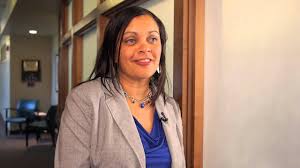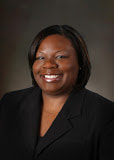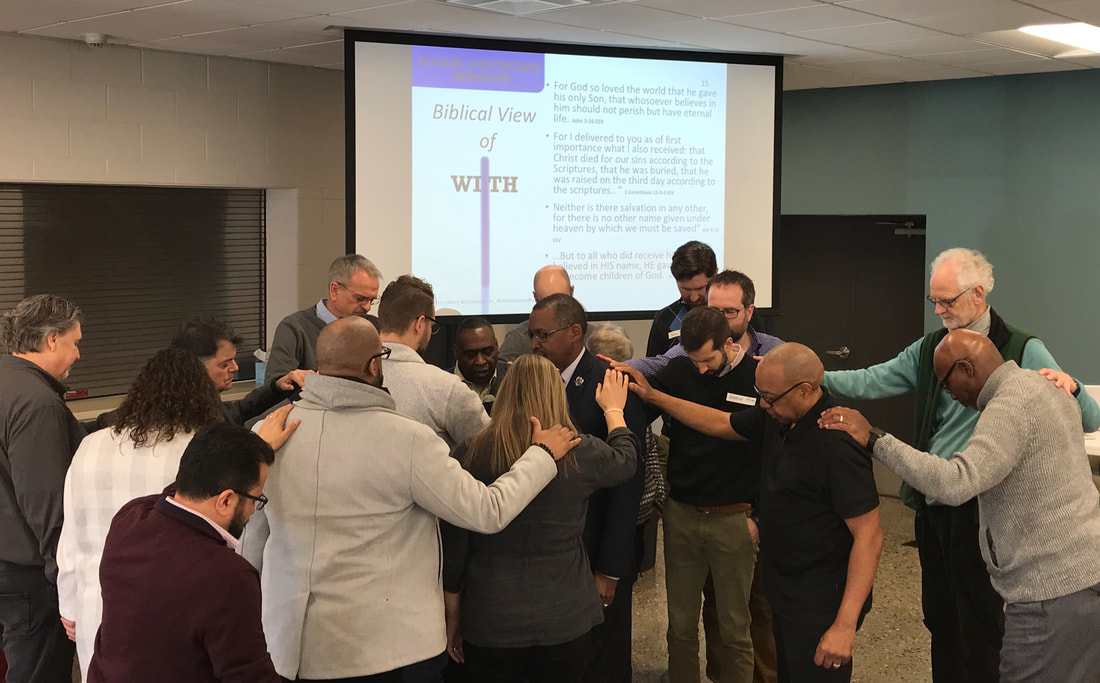|
Allison Colberg, Director of The Micah Center, sent this phone call guideline and script to a member of G-RAP's Executive Team, Rev. Jack Kooreman, and she graciously permitted us to adapt it and share it here. Now that pastors are unable to care for their congregations through in-person visits, that care is going to move to the telephone and to video chat (FaceTime, Zoom, Skype, etc.). Because the whole situation of having to cancel worship services, figure out how move your worship online, how to to provide practical aid to those who need it, negotiate leaving the house, possibly with children underfoot is overwhelming, and adding a whole new way of providing pastoral care on top of that can add to the overwhelm, having a guideline can hopefully dial down the stress. This can also be helpful to share with any of your leaders who will be making pastoral calls to your members. G-RAP is planning to hold a ZOOM meeting soon for us to talk about how we're doing. Watch for an email newsletter once we have a date, or contact us to let us know you're interested. Use this script as a tool to guide your one-to-one phone calls with members in your institution. The purpose of the phone call is to strengthen your relationships with members in your institution -- you will accomplish this by calling members to check-in and understand their needs or concerns.It will be very important to report to your leadership team what you are hearing in your calls. And your core team should reflect together on the needs that are surfacing. How should I go about doing a Relational Meeting over the phone/online? If they don’t already know you, they need to know:
The person also needs to know:
Hi ____, this is ______. (If not the pastor: I am a role at your institution.) I am calling on behalf of (institution name) and (the pastor, rabbi, principal) because personally I wanted to check-in in an effort to talk to everyone in our congregation during this challenging time. We want people to know we are here to support each other and we also want to hear stories to see if there is a pattern of things we might act on within our institution or regionally. So, how are you doing in these troubling times? This will be an opportunity to truly listen to what they say and not worry about moving to the next question. Listen for words and when appropriate say something like, “How does that make you feel?” or “How is this situation affecting you?” It is important to ask open-ended questions so they can truly reflect and ponder with you. Be prepared to share something real about your life during this epidemic to set the tone of the conversation… be vulnerable in a way that is appropriate to your public life. Examples: ● “I was just at the store trying to purchase groceries, and noticed ……” ● “I too have been struggling with ……” Are there (church members/other people) you’re concerned about or some you may have spoken to? Is there anything you or your family need help with? (Be prepared to share any information/ updates/ or support from your congregation, city, self-knowledge etc. You may want to know what you plan to do about funerals, in case you are asked about it. [Here is an article about how faith leaders around the world are dealing with the issue of funerals and mourning.) Examples: ● “We want you to know that we have a lot of teams that are primed to help. If you need someone to pick up a prescription for you or just call and chat. Would any of these things be of interest to you in the upcoming days and week?” ● “Did you know the school district is offering breakfast and lunch meals Monday-Friday at different school sites for all students? I can send you the information I have.” ● “With the current mandated shelter in place (quarantine), people may still go to the grocery stores, banks, pick up medicine, basically any essential task is permitted.” Last thing, I’d like to confirm your physical address, email, or phone numbers, how do you best receive information (text, online, phone)? Make sure you have/get their accurate contact information and how to best reach out to them. So good to talk with you. If it's alright I will call you again. Is that okay? (If they ask you why you want to call again… you may say something like, “I’d like to call again to check-in and see how you’re doing/ if there’s any new concerns/ etc.”) In the meantime, if you have any questions or hear any emerging concerns or stories from other people please contact me. Thank you, take care, bye. Practical Resources to Share The abilities of non-profits and government organizations in Grand Rapids to provide help are constantly changing, so here are some good resources to stay up-to-date on as you make these phone calls:
If you know of other resources, please share them! Contact us and we will add your resource to the list. All Belong Center for Inclusive Education Guidelines for phone calls to persons who are isolated
Phone Call Guide Accommodation ideas:
11 Comments
On Saturday, March 21, a few dozen Grand Rapids-area pastors took part in a ZOOM meeting with Teresa Branson and Dr. Nirali Bora of the Kent County Health Department and Dr. TaLawnda Bragg of Spectrum Health. Their purpose was to educate pastors about the seriousness of the novel coronavirus pandemic and convince them that the only responsible choice in the face of COVID-19 is to stop communal, in-person worship services. The call took place two days before Governor Gretchen Whitmer's "Stay Home Stay Safe" Executive Order 2020-21 (now extended to April 13), which only served to emphasize the message from the health experts: Subject to the exceptions in section 7, all individuals currently living within the State of Michigan are ordered to stay at home or at their place of residence. Subject to the same exceptions, all public and private gatherings of any number of people occurring among persons not part of a single household are prohibited.  That order surpassed the earlier order banning all gatherings of 50 people or more, and the suggestion that groups of not more than 10 should meet, which was the order the pastors were being educated about. Honestly, that meeting felt like it was a month ago, but the heartfelt pleas of our medical and public health community were powerful, so we will share them here. Teresa Branson addressed pastors' feelings that faith-based organizations were being singled out, but she assured them that all businesses and organizations were being asked to follow the same guidelines. On a personal note, she said, "We're not asking anyone to do anything we aren't doing ourselves. My church isn't meeting and we're a small church. We're talking about the health of our children, for the future." Dr. TaLawnda Bragg spoke plainly and powerfully: I am a Spectrum Health physician and a believer. I've worshipped with many of you and listened to your teaching. I will be honest and transparent, because in order for you to make the best decision for the people you are charged to shepherd you need to have the best information. I want to try to make things as clear as possible. This is a dire situation. Our cases in Michigan have skyrocketed over the last few days.  Dr. Nirali Bora, the Kent County Health Department Medical Director, also emphasized that, yes there are legal orders that we need to follow, but that "it's a moral issue or caring for each other." Dr. Bragg circled back to it in response to a report that the governor will exempt, or at least will not punish churches: This is a moral thing we want to address. Don't just avoid punishment, but keep your people safe. Bringing ten people from across ten different places across the community brings together everyone they're in contact with. Just like healthcare is going down to bare bones and using technology to reach our people, we're asking you to do the same. Best Practices To any faith-based leaders who were still feeling "targeted," Branson reiterated that the Health Department is making the same changes they are asking other organizations to make. But, she said, "we are imploring you to influence your congregations" to follow good practices:
Resources Of course, our people and our community still depend on the church as a source for practical aid, so pastors wanted to know how they could provide help safely. The main thing that the health department officials recommended was to maintain distance between people and limit touches, so drop off food at people doorsteps, or move from a food pantry to a food giveaway. Instead of interviewing people asking for help in person, move to the telephone or a video chat platform. The current order does permit churches to continue providing food assistance: 7. Exceptions. The abilities of non-profits and government organizations in Grand Rapids to provide help are constantly changing, so here are some good resources:
Looking Ahead When asked what the future looked like, whether churches could hold services again after April 13, or by the summer, the experts could not give a solid answer, because the situation is so in flux. I apologize for not know which person said this, but it was one of the doctors (there was no photo to accompany the speaker): From a medical standpoint, we do not have real numbers and real epidemiology of what's happening now and we do not have testing to the degree we'd need to made educated guesses as to what the future looks like. To people who think this is going away in the summer: in Malaysia, it's 95 and humid, and they have COVID. Our bodies have not seen this before, which is why it's everywhere. The implied answer was that we should also be prepared for these changes in our faith communities for the next few months.
To that end, G-RAP is looking at ways we can still get together and be a support to each other as pastors as we adjust to this new reality. Along with everyone else, we are looking at holding a ZOOM meeting, specifically to talk about moving our pastoral care from in-person visits to virtual ones. Allison Colberg of the Micah Center has offered to lead this training, and talk about how we can make this a real relationship-building time for our congregations. Look for information to come about that soon in the email newsletter, or contact us to let us know you'd be interested in being part of such a meeting. Thank you for all you are doing already. No seminary or Bible college or ministerial training program likely prepared any of you for dealing with this. Stay safe out there! On Friday, March 13, 2020, the Kent County Health Department met with urban pastors in Grand Rapids to talk about what COVID-19 meant for our churches. City Commissioner Rev. Joe Jones and the Doug and Maria DeVos Foundation's Khary Bridgewater helped put together this last-minute meeting. Jones wanted to make sure that urban pastors heard from the health department directly and got the opportunity to talk with each other about resources, because their churches don't always have a financial model that allows them to withstand a few weeks off. Bridgewater said, "We've been thinking about this for a couple of weeks, since hearing about the case in South Korea where the center of transmission was a church. The Urban Church Leadership Center is closed now because the seminary campus is closed, so that staff is one hundred percent working on helping churches with anything they need. What creative ways can we find to worship together? Go small, short, and sweet? Multiple sessions? Move to online viewing and online giving? Pastors should contact Rev. Julian Guzman at [email protected] to mobilize that help, including using the UCLC website to host your videos if you decide to suspend services." The information from the health department was clear, helpful, and did what Joann Hoganson, Community Wellness Director, wanted it to: it brought some anxiety down. Basic Information Size of gatherings:
How is the virus transmitted:
What you can do as a church:
Who's Who We heard from Teresa Branson, the Deputy Health Officer, Steve Kelso, the Marketing and Communications Manager, and Joann Hoganson, the Community Wellness Director. Branson told us that although this is a situation that is fluid, and that things are constantly changing as information comes in and as the state makes decisions, the Kent County Health Department put its Incidence Command Structure in place a few weeks ago. Adam London is the Commander, and all decisions come from him (he was unable to be with us because he had new meetings to attend after 3 cases were confirmed in Kent County), Branson is the Deputy Commander; they also have a Safety Officer who is concerned with the health of health officers, a Lead Epidemiologist who takes the lead with quarantined individuals, and a Medical Liaison who maintains frequent contact with infectious disease specialists and disseminates that information. Although this is a new virus that they keep learning about, they exercise and train for events like this, and they follow the incidence command structure. Pastors are also part of the who's-who. Kelso began his remarks by thanking the pastors: "Thank you so much. The work you do in the community is so important and we appreciate it. Our role as public health isn't to stop the spread--that ship has sailed--it's to limit the spread of the virus. It's such a simple message. Wash your hands. Stay home if you're sick. Cough and sneeze into your elbow. You folks are so important as we are at this point in communicating these things to people. We don't have legal authority to stop gatherings of more than 100 people, so your cooperation will be key to slowing this thing." Questions and Answers One of the pastors asked about testing kits and Kelso admitted that testing is not very available. He noted that when people with fever and cough come to the emergency room, they are first tested for the flu, and that our flu numbers are higher than last year and above the 4-year average. But if they don't have the flu, then hospitals look at whether there are other things in that person's life that would indicate using one of the few tests Michigan has. He said that the safest conclusion is that COVID-19 is here. Another pastor asked about how to handle funerals and funeral repasses, both because they often draw more than 100 people and because there is typically a lot of physical contact. Kelso was definitive about no handshakes, but admitted, "There's going to be a lot of hugging, and that's good for the soul." Branson chimed in and repeated the litany of limiting touches to hard surfaces and providing hand sanitizer if possible. She suggested that churches put signs about handwashing and coughing hygiene in bathrooms and on tables. And, as difficult as it would be, let people know that they should stay home if they are sick. She also recommended that meals be served or catered so servers could wear gloves while handling utensils to limit touches to hard surfaces. City Commissioner Rev. Nate Moody noted that he's been seeing a lot of hostility in people, getting into arguments and hoarding goods. Branson lamented the national failure of not having enough supplies of certain materials, but said that part of the reason Governor Whitmer declared a state of emergency was to help Michigan get supplies more quickly. She said, "Don't meet hostility with hostility but with compassion and do what you can to calm them: people fear the unknown." Kelso emphasized the fear behind the hostility: "People are afraid and want somebody to blame. Let people know there's no one to blame and we're all in this together. Helping people understand that may be enough to calm some people." Hoganson was the source for the wonderfully clear information at the top of this article about how COVID-19 is transmitted. Her husband is a pastor and she spent 18 years as a missionary in Brazil, so she was very at home talking with a room full of church folk: "We can't take away the church because it is a stabilizer for people who are anxious. Be creative about how you will supply spiritual support. Divide into groups. Spread people out. No handshaking or hugging. People are going to stay home, so that'll bring numbers down. Clean between services. Make a phone tree and assign people to call the elderly. Put your focus on your most vulnerable people. Meet outside! The virus is heavy and if sneeze or cough droplets fall to the pavement or grass that's safer than if you're indoors." She gave us good information as to the difference between quarantine and isolation:
Pastors can still visit congregation members. Hoganson told us about the protocol her nurses use. When they call to make an appointment to come to someone's home they ask: Are you sick? Is anyone running a fever? Does anyone have a new cough? If the answer to any of these is yes, they schedule a phone or video meeting. If the answer is no, then the nurse comes to their house, washes their hands before and after the visit, avoids touching surfaces wherever possible, and tries to maintain a safe distance. The focus of the questions is purposely, "Are you sick?" and not "Do you have coronavirus?" Rev. Julian Guzman asked the question on all our hearts: How long? But there was no answer. Branson noted that things are happening that none of them had ever seen in their careers in public health: closing schools, ordering gatherings of 250 to be cancelled. She said, "We're not getting information daily or hourly, but moment to moment. So keep up with these measures until we hear otherwise." A pastor asked about their plans for managing the number of available beds in hospitals and Branson reassured us that that working with local hospitals on that is part of their incidence command structure; they are also already at work identifying other places people could use for isolation before shortages happen. The question about the virus and any danger in handling money was answered with: limit touches, wear gloves, wash hands, encourage online giving. Hoganson clarified the question of, "Who wears the mask?" A person who is sick wears a simple mask to present passing on their illness. A health care professional wears an N-95 mask that needs to be professionally fitted to protect them from getting ill while their are providing care. When a pastor asked what people without health insurance should do about getting tested for COVID-19, Branson said that they should go to the emergency room if they are having symptoms, that they will be seen and tested whether they have insurance or not. We will let Hoganson have the last word: "There are a whole lot of sheep that need healthy shepherds--so take care of yourselves!" Rev. Henry McClendon, pastor of the Berean Chapel in Detroit and the Michigan representative of the International Institute for Restorative Practices (IIRP), had a big day in Grand Rapids on Thursday, February 20, speaking with the Restorative Justice Coalition, C.L.E.A.R., the pastors of G-RAP, and in a panel on “Becoming a Restorative City” that evening. We are grateful that he was able to speak with us about restorative practices and the differences he’s seen those practices make for people in great conflict. Rev. McClendon worked for many years in prison fellowship, training men to be mentors to those coming out of prison, helping them make the transition back to society. In ten years of doing this, they didn’t have anyone who graduated from their program go back to prison for a serious crime—and many of the returning citizens had been at a high risk for recidivism. Traditional Model vs. Restorative Practices To introduce restorative practices to us, McClendon first outlined the current model for what happens when the law is broken. The tradition model asks:
This process is adversarial: the victim and the perpetrator are separated, and the perpetrator is separated from society. It validates the law. The result of this model in the United States has been incarceration rate of 716 per 100,000 people. The next four countries’ rates are: UK, 147; Portugal, 136; Luxembourg, 122; Canada, 118. In 2016, 36 U.S. states incarcerated more of their citizens than any other country in the world—and Michigan is in that group of 36. Moreover, our country imprisons more of its African American population than South Africa did at the height of apartheid. On the other hand, the restorative model asks:
Everyone here means the victim, the offender, and the community. This process is communal. It cares why the offender did what they did. There are formal questions to ask, answer, and there must be a commitment to listen to the answers. Entering this process doesn’t make the harming action less wrong, but it asks what support the offender might need to make sure they don’t do something like this again. McClendon said plainly, “Warehousing does not hold people accountable.” The primary aim of restorative practices is “to develop community and to manage conflict and tensions by repairing harm and restoring relationships.” He observed that it takes advantage of something basic to human nature: “People are happier, more productive and cooperative and able to make change when people do things with them, not to or for them.” Good Questions First, McClendon pointed out that there’s one bad question to ask, that most parents know is a question that never produces a satisfying answer: “Why did you do that?” Instead, he encouraged us to use the questions that the IIRP prints on business cards to make them easy to pass out and refer to: “Stick to these and trust me, it’s transformational.” RESTORATIVE QUESTIONS I TO RESPOND TO CHALLENGING BEHAVIOR * What happened? * What were you thinking at the time? * What have you thought about since? * Who has been affected by what you have done? In what way? * What do you think you need to do to make things right? RESTORATIVE QUESTIONS II TO HELP THOSE HARMED BY OTHERS’ ACTIONS * What did you think when you realized what had happened? * What impact has this incident had on you and others? * What has been the hardest thing for you? * What do you think needs to happen to make things right? (Copyright 2016 IIRP Graduate School) McLendon described one situation where he was brought in, kind of by accident. He’d done a restorative practices training at a school and was dropping by to check in on them when the principal brought him in to the office because sitting there was a girl and a boy who’d gotten into a physical fight, and the parents were on the way. He agreed, and got the parents to agree to the process, although they were “livid.” The kids answered QUESTIONS I; the parents answered QUESTIONS II. He said that the real difference in the meeting came when each child’s parent answered, “What has been the hardest thing for you?” The girl’s mother said, “The hardest thing for me is I’m afraid for you because you think you can hit boys and what happens when it’s a bigger and a bigger one?” The boy’s stepfather said, “I’m the only father you’ve ever known and you’ve never seen me raise my hand to your mother and the idea of my son doing to a young lady what you did today...” Before going through the process, the parents hadn’t been calm enough to express these deeper fears and emotions. The result of going through a restorative practice was that the students came up with better solutions to make things right than the standard suspension rules and, as the principal later told McClendon, “the young man grew up in that meeting.” McClendon said, “Don’t waste a crisis. Conflict is an opportunity to build community.” When asked by one of the pastors how long after a violent offense is this approach effective, McClendon told stories about gang members who’d taken contracts out on each other who are now brothers, and about a woman who went through a restorative process with the man who’d murdered her daughter 14 years earlier who she wound up forgiving and essentially adopting into her family. His preacher voice came out at the end of our time together: “It’s redemptive. It works. I want everyone to have this opportunity. An open wound we haven’t allowed to heal is a sin. The power of the gospel is what will transform lives. The blood of Christ is sufficient to heal. The world is desperate. We’ve got to be the light. We’ve been given the ministry of reconciliation.” Resources The IIRP is a graduate school that currently offers a master’s degree, and soon a Ph.D. in restorative practices; you can also take a one-day training to become a certified RP Trainer. Their website, www.iirp.edu, has several free recorded webinars, as well as a store where you can buy the business cards with the questions on them (in English and in Spanish), https://store.iirp.edu/restorative-questions-cards-pack-of-100-english-or-spanish/. Please put Thursday, March 19, 11:30am – 1:00pm on your calendars for our next meeting.at the NAACP offices at 1530 Madison Ave SE.
(speakers to be determined). Please contact us if you are a pastor in the Greater Grand Rapids area who is interested in issues of unity, reconciliation, and justice and would like to be on our email list. |
AuthorNatalie Hart Archives
September 2023
|





 RSS Feed
RSS Feed